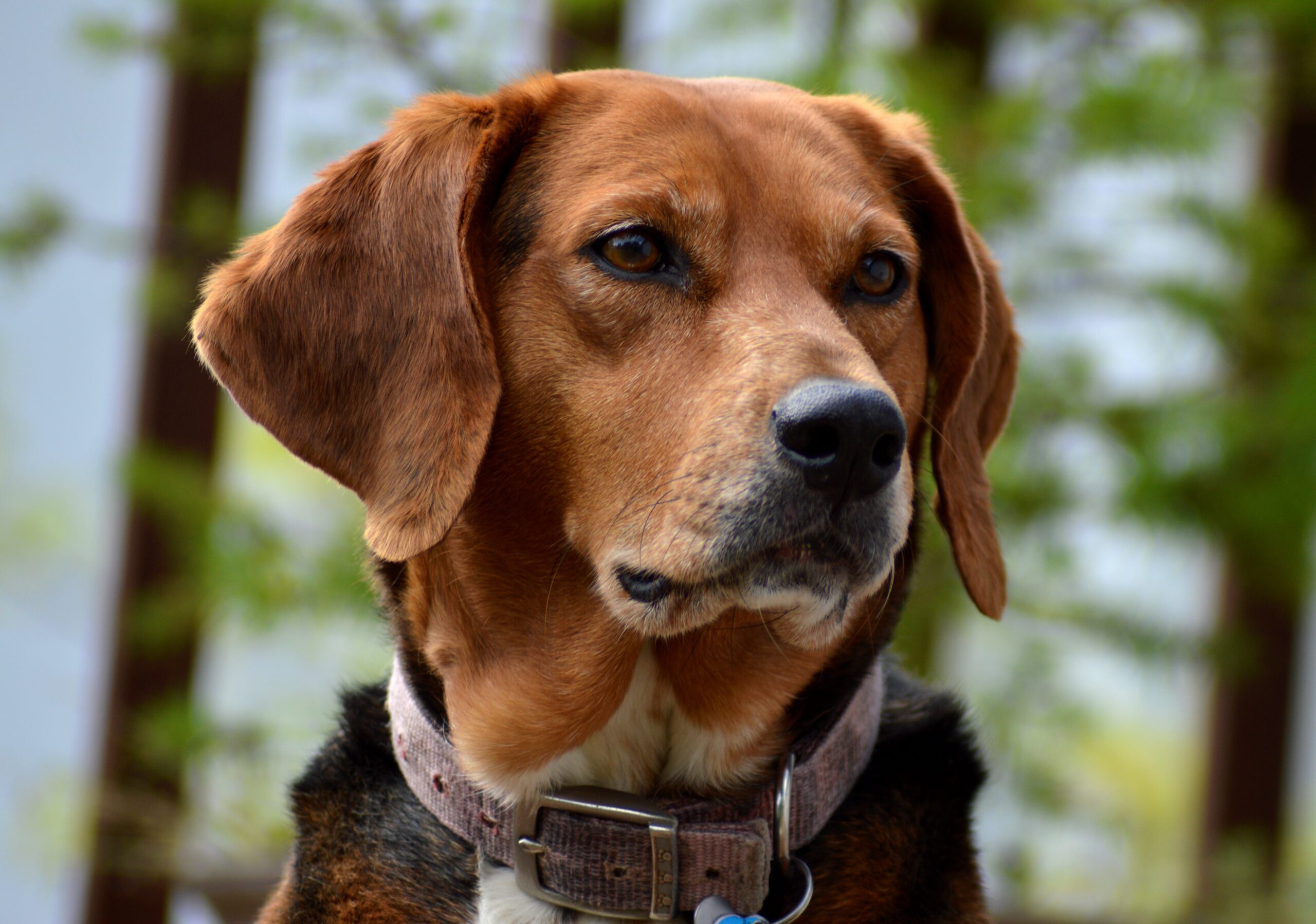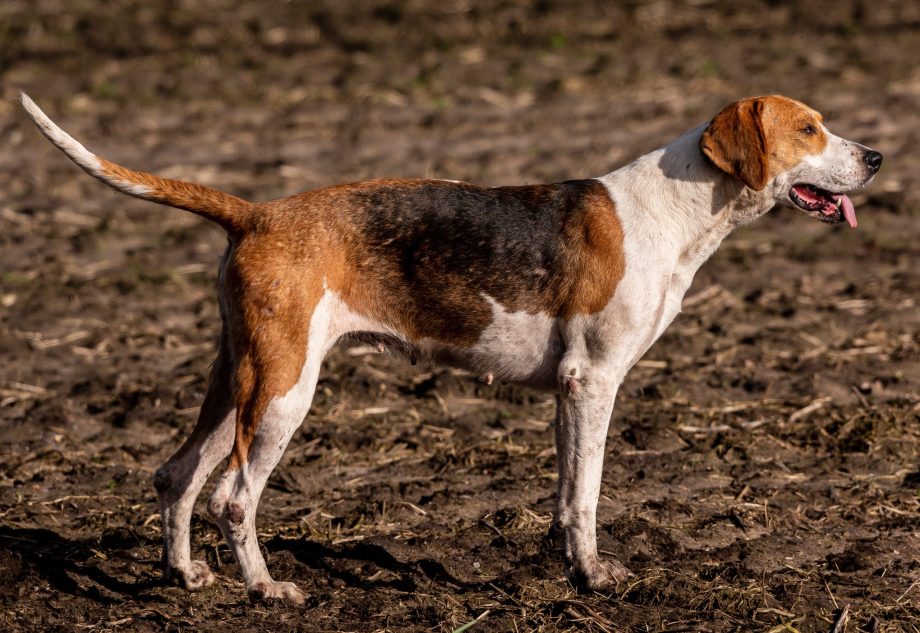The Foxhound is a large, athletic hound dog, developed for use in fox hunting packs. These are extremely active and bright dogs, with a medium-large frame, long straight legs, a deep chest providing a large amount of lung capacity and a short coat in a combination of black, tan and white.
Foxhounds are friendly, good-natured and tolerant dogs which are good with children and, as pack animals, get on well with other dogs and should ideally be kept as part of a multi-dog household. Their strong hunting instinct may make them less suitable to co-habit with smaller household pets, although early socialisation and careful introductions will help. This is a breed that requires a lot of exercise and has boundless energy and stamina. They need lots of log walks and opportunities to run, although if they latch on to an interesting scent, it may be difficult to get them back. Training from a young age is therefore very important, as is finding safe secure areas for exercising, as even a trained foxhound on a scent may be difficult to recall. This good-natured dog is best suited to an active multi-dog individual or family with lots of outdoor space and energy to keep up with this breed.

History
Foxhounds were developed to run in packs and chase foxes, in a British tradition dating back to the 1600s. The breed was developed from bloodhounds (for scent) and greyhounds (for speed) amongst others.





